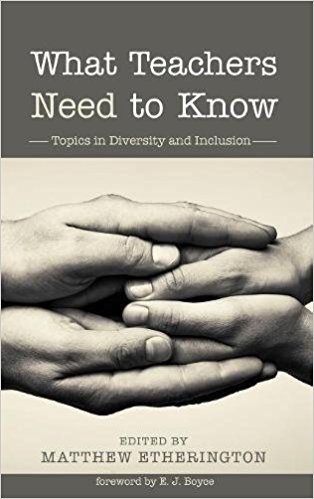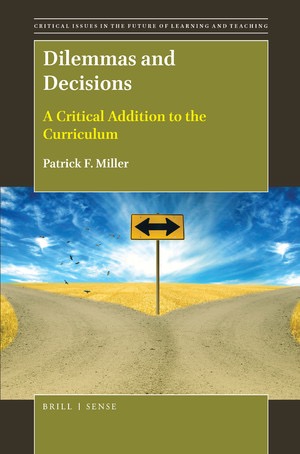ethics
Select an item by clicking its checkbox
Date Reviewed: June 17, 2021
Such moral certainty is dangerously mistaken, breeding ...
Such moral certainty is dangerously mistaken, breeding extremism and undermining democratic values. Education can become a kind of preparation for Multiple Choice Question-type exams or TV quizzes, with facts recalled under pressure of time and problems needing fast solutions.
Problems, however, are different from dilemmas; they have solutions and disappear as soon as these are found. Dilemmas leave you with an aftertaste and a sense of regret about the rejected alternative. (From the Publisher)

What Teachers Need to Know: Topics in Diversity and Inclusion
Date Reviewed: January 22, 2018
What Teachers Need to Know (Etherington, 2017) is a substantial text defining the diverse and inclusive experiences of contemporary education systems. The book is a compilation with three major parts: “Ethics,” “Inclusion and Teacher Management,” and “Worldview and Story.” Each chapter provides reading questions for use in a classroom setting or for deeper reflection. This is well-suited for an audience in higher education, especially for readers who could share personal experiences with diversity and inclusion topics after a practicum or time teaching. I would recommend this book for a post-graduate education library.
The first part, “Ethics,” includes works by Sherick Hughes, Martyn Rouse, Jonathan Anuik, Chet Bowers, Eva Maria Waibel, the editor, Matthew Etherington, and James Dalziel. There is quite a range of topics in this section, but the Wabash Center reader might be particularly interested in Anuik\'s essay on faith-informed discourse. It is a study about the influence of missionary education on Indigenous beliefs, and how that reaches into Canadian public education today. It compels the reader to contemplate whether church and state can truly be separate in an educational context when there is such a significant inheritance of practice and values from a period dominated by religious influence.
Part Two, “Inclusion and Teacher Management,” includes works by Peter J. Froese, Ken Pudlas, Lucinda Spaulding, Karen Copeland, Bruce Shelvey, and Ken Bradley. Spaulding\'s essay reflects the current shift of attention to patterns of bullying and puts forward the mechanisms school communities can provide for the resiliency of the students. Other essays in this section discuss topics such as mental health, special needs, and even bring in the parents\' view on these issues as they exist in the educational system. This is an exceptional collection of essays on inclusivity.
The third and final part, “Worldview and Story,” includes works by the editor, Matthew Etherington, Edward R. Howe, Adam Forsyth, Leo Van Arragon, Christina Belcher, and Cynthia à Beckett. This section has the most obvious correlation to religious studies within educational contexts. Topics include: tolerance, science and religion, and epistemology. This section could serve as an excellent initial reading for students in a practical theology or other contemporized religious studies capstone course.
This book might not be a comfortable read in a public classroom, but maybe that is exactly why it should be read. Etherington\'s compilation offers academic theological reflection for secularized educational contexts. This book could be useful in a range of contexts. It may be particularly helpful to new teachers, parent associations, pastors of students, and community leaders.
